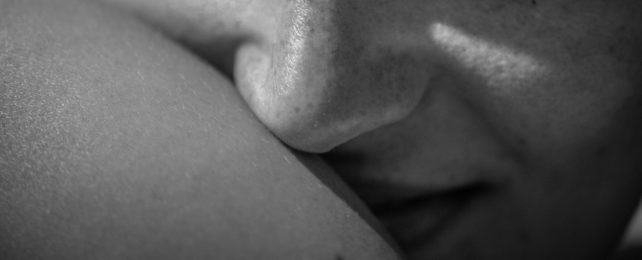A person's nose could play an important role in their sex life, according to a new international study.
In China, India, and the United States, researchers found young individuals who tend to sniff out the scent of others are more sexually motivated.
In surveys, participants who placed more importance on their sense of smell were also more likely to report stronger sexual desires.
These findings were consistent across both sexes and all three cultures.
Of course, this doesn't mean there weren't sexual and cultural differences identified in the surveys.
Women, for instance, tended to put more of an emphasis on smell than men. They also reported less sexual desire overall.
In India, meanwhile, participants reported a significantly higher sex drive than America. They also put a higher premium on their sense of smell than participants in the US.
"Despite sex and cultural differences, correlational analyses and hierarchical multiple linear regression analyses indicated that subjective importance of olfaction and body odor sniffing was consistently related to sexual desire across countries," the authors conclude.
When it comes to human sexuality, the findings suggest there might be an evolutionary significance to smell.
Smell is one of the more overlooked of the human senses, and as a result, there is much scientists are still finding out about it.
That was perhaps never more apparent than at the start of the COVID-19 pandemic, when thousands of distressed people all over the world began to lose their sense of smell after falling sick with the novel coronavirus.
A sense that had previously been taken for granted was now paid attention to on a scale like never before.
But while much of the conversation has focused on how smell enhances our experience in the kitchen, or the great outdoors, the bedroom has been comparatively overlooked.
Nevertheless, multiple studies show that a loss of smell often coincides with a loss in sexual desire.
A better sense of smell has also been linked to stronger sexual motivations in young men.
In a recent internet survey, more than 50 percent of respondents complained that their loss of smell had an effect on their sex life.
In 2018, one study found evidence that a person's sensitivity to scents is associated with feelings of greater pleasure during sex and more orgasms.
Our subjective experiences of smell seem to be closely tied to our sexual desires, but scientists can't say much more than that.
If smell is the 'forgotten' sense, then scent must be the forgotten aphrodisiac. Humans regularly underrate their ability to smell pheromones, despite the fact that studies show we are actually quite good at it.
In experiments, men can actually smell when a woman is turned on!
The current study is an attempt to sniff out this invisible landscape more and explore the way that human sexual behavior is influenced by our noses.
The original experiment was initially conducted among 1,903 college students in China, who filled out a questionnaire on the importance they placed on their sense of smell. They also filled out a sexual desire inventory and a survey on sniffing others.
The authors wanted to know how often participants sniffed themselves and others, and what significant participants placed on these interactions, if any.
The experiment was then replicated among 313 Indian residents and 249 US residents.
The findings across all three cultures suggest smelling another person's body odor could play an important role in sexual motivation that might be universal.
While it's true that many of the college students surveyed had not actually had sex, the authors say their sense of smell was closely associated with their desire to do so.
Younger people tend to have stronger sexual motivations, and it's possible that this has to do with their higher olfactory sensitivity.
Further research needs to be done in other cultures and among different age groups to really dig into the sexiness of human scent.
But clearly there's more to human sexuality than meets the eye.
Part of it might be going up our noses, too.
The study was published in Archives of Sexual Behavior.
